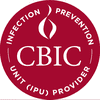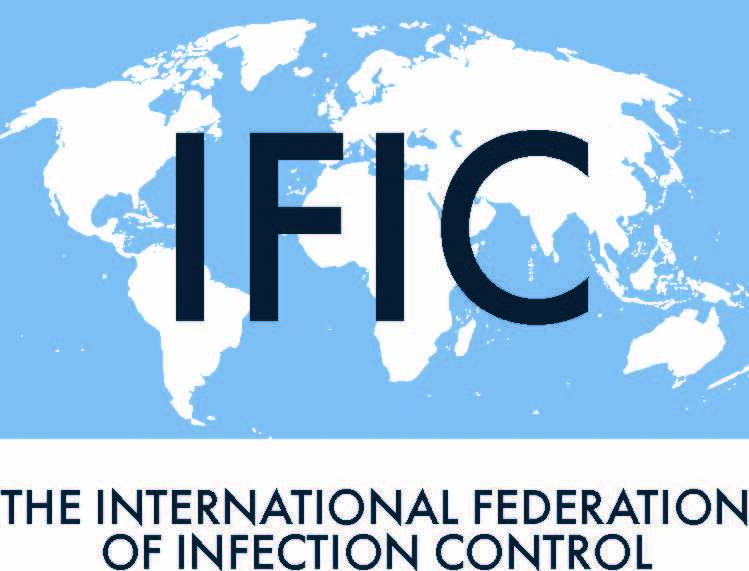
APIC and IFIC: Antimicrobial Stewardship
Recorded On: 11/04/2024
-
You must log in to register
- Non-member - Free!
- Member - Free!
Monday, November 4, 2024 @ 10 am ET
Antimicrobial Stewardship in UTI: Lessons learnt from a multicentric multidisciplinary study: DASH to Protect Antibiotics
Dr Meher Rizvi
Antimicrobial stewardship in ambulatory UTI is the need of the hour as a large quantum of unregulated prescription of antibiotics takes place in this large patient group. In LMICs, academic detailing is usually carried out by medical representatives of pharmaceutical companies- driving the needless consumption of newer and more broad spectrum antimicrobials.
Through DASH to protect antibiotics, a large multicentric, multidisciplinary and multiregional study attempts to promote evidence based prescribing by guiding the centres in preparation of local antibiograms, assessing the current prescribing pattern through vignette based questionnaires and then imparting targeted education after analysing the questionnaires. Microbiologists, Medical education team in SQUH and co-PIs of the representative departments are powering this study effectively. Online interaction has become mainstream post COVID and this study is an example of how one can reach out to experts across
The antibiograms showed great variation in susceptibility in different regions. Variables like gross domestic product, humidity, temperature and population density also played a role in antimicrobial susceptibility in Escherichia coli and Klebsiella pneumoniae.
The clinical colleagues faced difficulty in filling the questionnaire but the eureka moment experienced during the interactive educational sessions brought home the fact that the educational sessions with entire department were fruitful and a consensus was developed. A point prevalence study is planned to study the current prescribing habits.
Pilot study of practices in pre-analytic diagnostic stewardship and IPC of nurses and patients in Oman shared an interesting insight.
About the Speaker:
Dr. Rizvi is an Associate Professor, Department of Microbiology and Immunology, Sultan Qaboos University, Oman and Professor, Department of Microbiology, Jawaharlal Nehru Medical College, Aligarh Muslim University, Oman. She have over a hundred research papers and four book chapters to her credit. Dr. Rizvi did MBBS from Lady Hardinge Medical College, MD from Maulana Azad Medical College, New Delhi and Ph.D. from Aligarh Muslim University. She has been awarded the position of Ambassador of American Society (ASM) for Microbiology to Oman, 2022-24. Was awarded the position of Ambassador, Society of Healthcare and Epidemiology of America (SHEA) 2021 and the Young Scientist award by Aligarh Muslim University in 2008. Dr. Rizvi has been awarded several grants, starting with a DST grant for an interesting project on immunopathogenesis of acute, chronic and occult HBV. She is leading an interesting multicentric, multidisciplinary study entitled: DASH to protect Antibiotics short for A multicentric study to promote antimicrobial and diagnostic stewardship in UTI (DASH to protect Antibiotics) an experiment in mentorship and expand the one health concept. https://dashuti.com/. Over 62 centres are currently participating in the DASH study. She organizes one or two annual symposia where she invites leaders in their field to deliver cutting edge talks. These are well attended events.
Strategies to Improve Urinary Catheter Stewardship, to Reduce Infections and Injury from Catheter Use
Speaker: Dr. Jennifer Meddings
This presentation will describe interventions and implementation strategies for reducing unnecessary or prolonged use of urinary catheters, as well as for reducing injury from traumatic insertions.
About the Speaker:
Jennifer Meddings, MD, MSc, is a Professor of Internal Medicine and Pediatrics at the University of Michigan Health System and the VA Ann Arbor Healthcare System. Her research includes projects focused on developing and assessing the impact of patient safety initiatives upon the care of patients with chronic illness, with a focus on preventing catheter-associated urinary tract infection and injury. Her recent work has focused on developing and evaluating the impact of clinical interventions to improve patient care delivered at the bedside by nurses and physicians. She has published several systematic reviews of interventions to reduce catheter-associated urinary tract infection, in multiple clinical settings. Much of her recent work to prevent urinary catheter-associated infectious and non-infectious complications has focused on reducing inappropriate urinary catheter use for medical and surgical patients, based on her experience applying the RAND/UCLA Appropriateness Method to refine appropriate catheter indications, as published in the Annals of Internal Medicine for hospitalized medical patients, and in BMJ Quality and Safety for the Michigan Appropriate Perioperative (MAP) Criteria for common General Surgery and Orthopedic Surgery procedures.
Continuing Education (CE) Credit:

In support of improving patient care, The Association for Professionals in Infection Control and Epidemiology, Inc. (APIC) is jointly accredited by the Accreditation Council for Continuing Medical Education (ACCME), the Accreditation Council for Pharmacy Education (ACPE), and the American Nurses Credentialing Center (ANCC), to provide continuing education for the healthcare team.
Nursing:
- APIC designates this activity for 0 Nursing Contact Hours
Physicians:
- APIC designates this live course activity for a maximum of 0 PRA Category 1 Credits™
- Physicians should claim only the credits commensurate with the extent of their participation in the activity.

IPUs
- APIC designates this activity for 0 infection prevention unit(s).
- For more information, please see https://www.cbic.org/CBIC/Recertify/Recertification-by-Continuing-Education.htm
